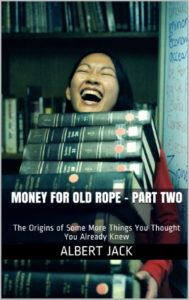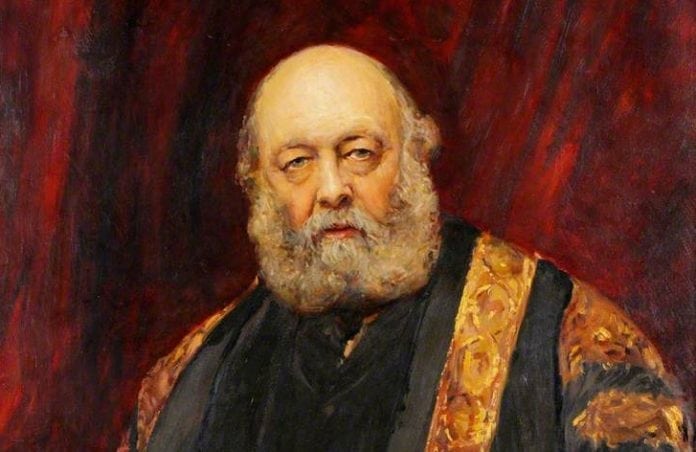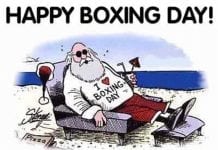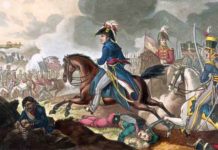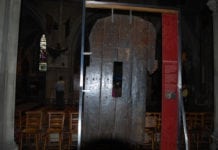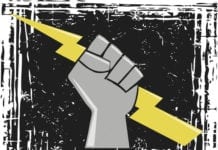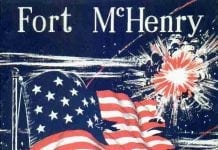Bob’s your Uncle is often used to describe something that is resolved in your favour without much effort such as ‘Just send the form in and Bob’s your uncle’. The phrase was in regular use in England from the 1890’s and comes from the promotion in 1886 of Arthur Balfour to Secretary of State for Ireland.
Balfour was a surprise choice for the position and few regarded him as qualified for the post. But when it became known he was the nephew of British Prime Minister Robert Gascoyne-Cecil, 3rd Marquis of Salisbury, the joke circulated that if Robert was your uncle, then anything was possible.
When drinking with friends, it is not unusual for someone to announce ‘Bottoms Up!’ as the session begins. Many imagine this to be the action of draining a glass so that the bottom is raised higher than our lips.
Not so; in fact, events in history once again provide the root of this well-known phrase. During the 18th and 19th centuries, English press gangs would coerce drinkers in London’s dockside pubs into joining the armed forces, usually the navy.
Men who accepted the ‘King’s shilling’ were deemed to have willingly contracted to join the navy, and this led to unscrupulous behaviour by the commissioned press gangs.
One of their dishonest techniques was to drop a shilling into the pint pot of a drunk or unsuspecting man, which would go undetected until the poor chap had drained his tankard.
Once the shilling was discovered, the press gangers claimed to others that this was proof a payment had been accepted, and the victim would then be dragged away to wake up the following morning on board a ship far out to sea, unaware of what had happened to him the night before.
The unfortunate fellow might then spend years on the ocean wave. Once public houses and drinkers became aware of this scam, they introduced tankards with transparent bases (which can still be found hanging in many pubs to this day) and customers would be reminded to lift the pint up and check the bottom for illicit shillings before they began drinking.
 To Bite the Bullet is to carry out a task against both a person’s wishes and better judgement. It means getting on with something that just ‘has to be done’. This phrase has its origins in the British Empire as the Victorians made friends around the world at the point of a gun.
To Bite the Bullet is to carry out a task against both a person’s wishes and better judgement. It means getting on with something that just ‘has to be done’. This phrase has its origins in the British Empire as the Victorians made friends around the world at the point of a gun.
At the time of the Indian Mutiny gun cartridges came in two parts with the missile part being inserted into the base and held in place by grease made of either cow or pork fat. To charge the bullets the two parts had to be bitten apart and the base filled with gunpowder before they could be fired.
This task was usually left to low ranking Hindu soldiers (virtually slaves) to whom pigs are holy animals, sacred and not to be desecrated. However they were forced, against their wishes, to ‘bite the bullet’ in times of battle.
As Bold as Brass is a well known saying applied to anyone with the courage of their conviction and not afraid to be seen either succeeding or failing.
It is recorded that the phrase dates back to the late 1770’s and refers to a London Magistrate called Brass Crosby. At that time it was illegal for the workings of Parliament to be published for public knowledge.
However, one London printer produced a pamphlet revealing some of the proceedings and was immediately arrested. He was brought before Brass Crosby’s court and the magistrate, in tune with public opinion, let the printer off. Crosby was immediately arrested for treason and himself thrown in Gaol.
But such was the public outcry, in support of the magistrate, that Brass was released and he became something of a hero. His brave stand against authority was widely reported, leading to the term as bold as brass passing into common parlance.
To Stage a Boycott would mean withdrawing from social or commercial arrangements as either a protest or punishment and the phrase is one of the few to eminate from Southern Ireland. In the 1870’s Captain Charles Cunningham Boycott, an Englishman, was working as land agent for Lord Earne at Loughmask in County Mayo.
In September 1880 a campaign, organised by the Irish Land League, was calling for a reform of the system of landholding and protesting tenants demanded Captain Boycott initiate a substantial reduction in their rents.
Boycott refused, even ordering anyone in arrears be evicted, and Charles Parnell, the President of the Land League, made a speech calling for everybody in the local community, not only Boycott’s tenants, to refuse to have anything to do with the unpopular agent.
The result was that labourers refused to work for him, shop & inn keepers declined to serve either him or his family and even the postal staff refused to deliver his letters.
Boycott had to go to the expense of having his food brought in, under guard, from great distances away and employed 50 labourers from as far away as Northern Ireland for the harvest, all protected by a guard of nine hundred.
This action by the locals was so successful, and aroused so much passion, (it was even reported in The Times of London during November 1880) that the Land League called upon all Irish men and women to treat similar landlords, or their agents, like ‘Boycott’.
Within weeks the phrase was adopted by newspapers around Europe and subsequently worldwide. By the time the Captain died in 1887, after fleeing back to England, the word had become a standard part of the English language. – Albert Jack
Albert Jack AUDIOBOOKS available for download here
